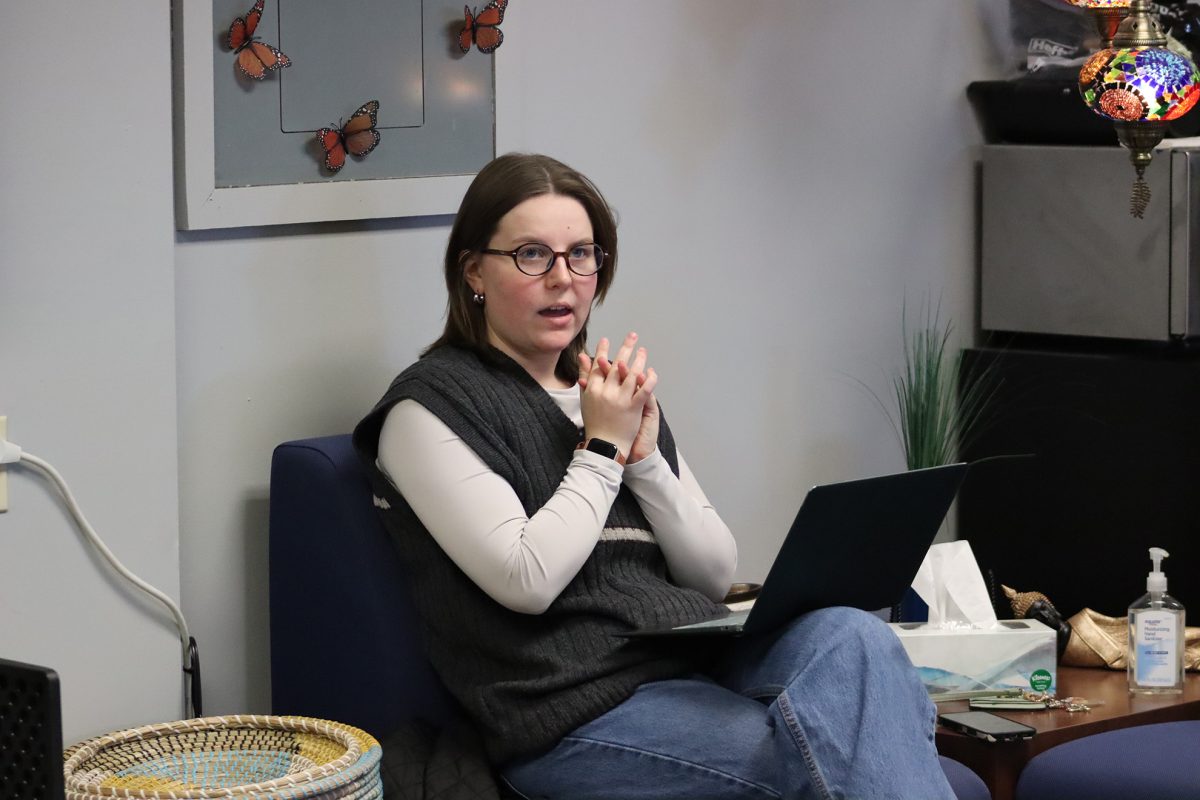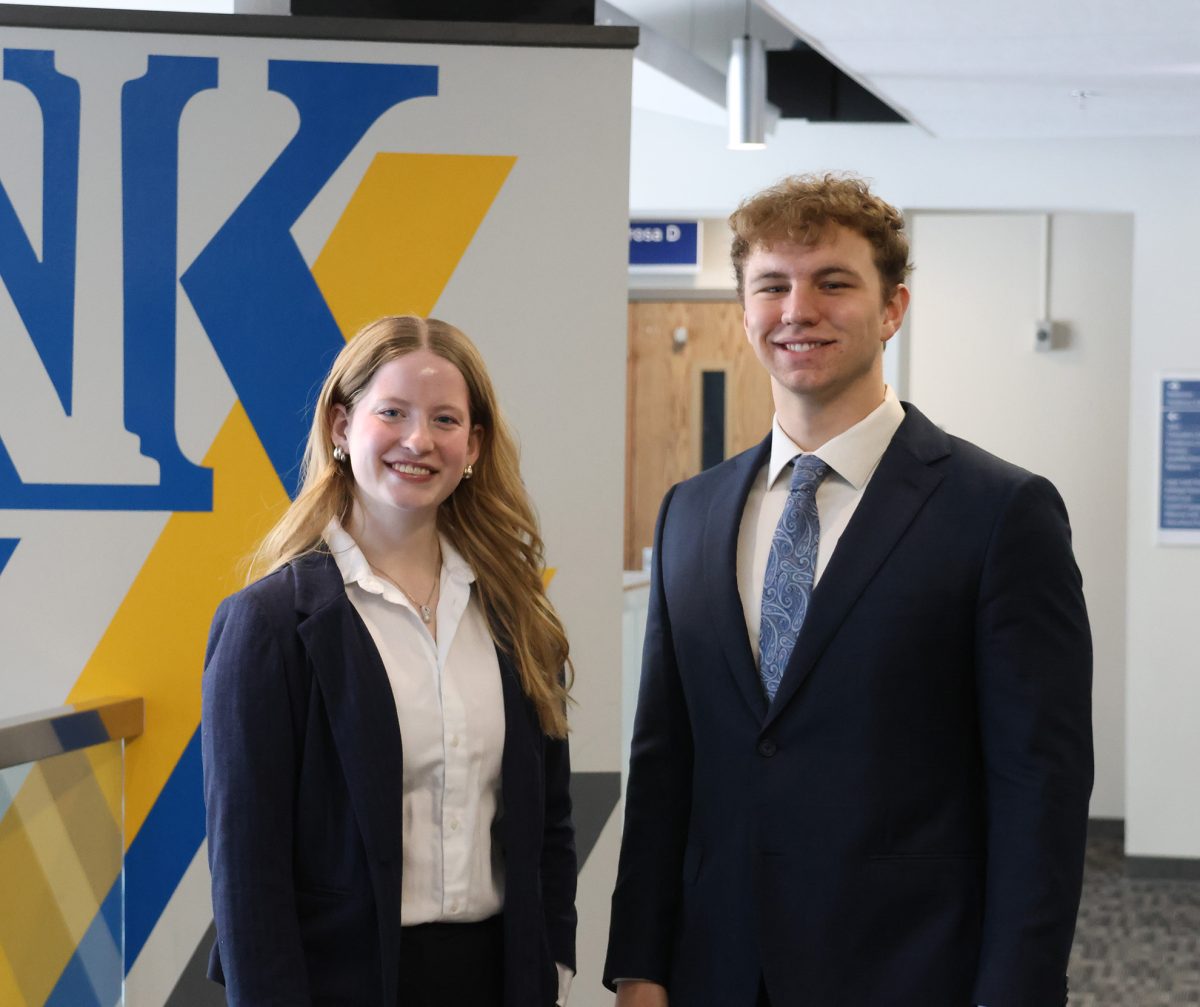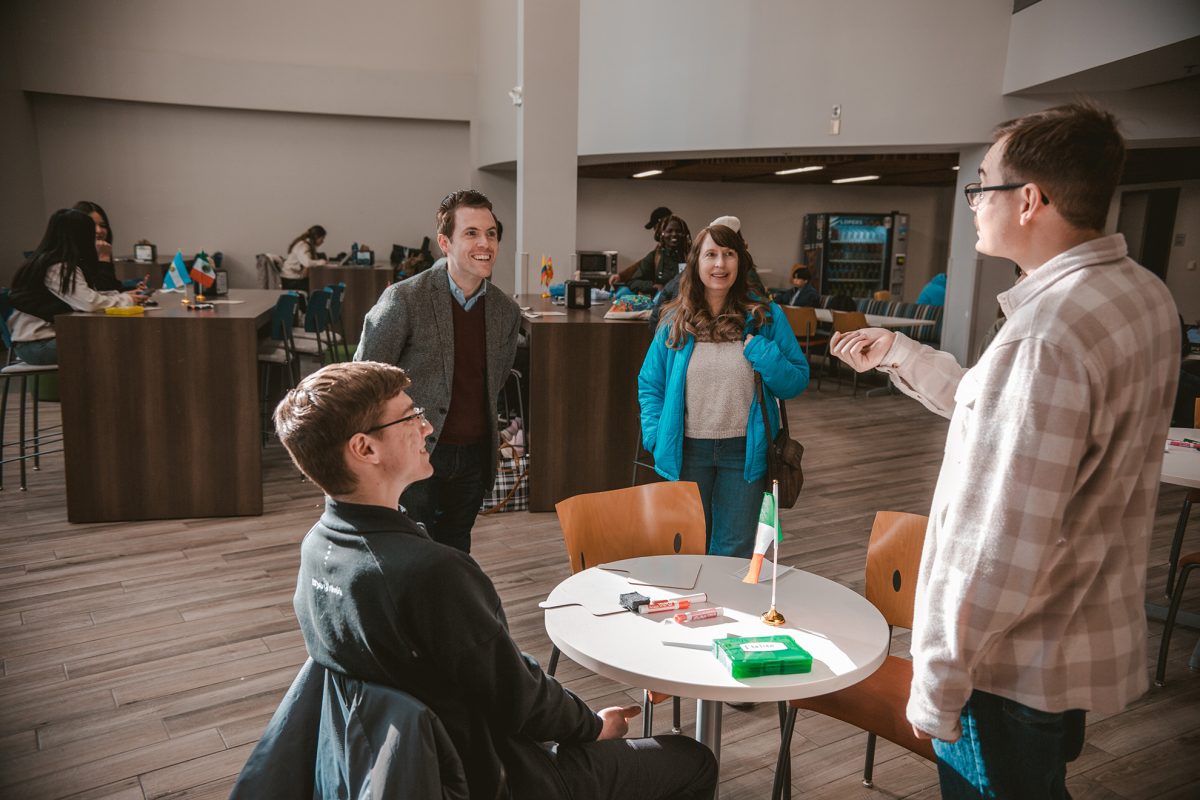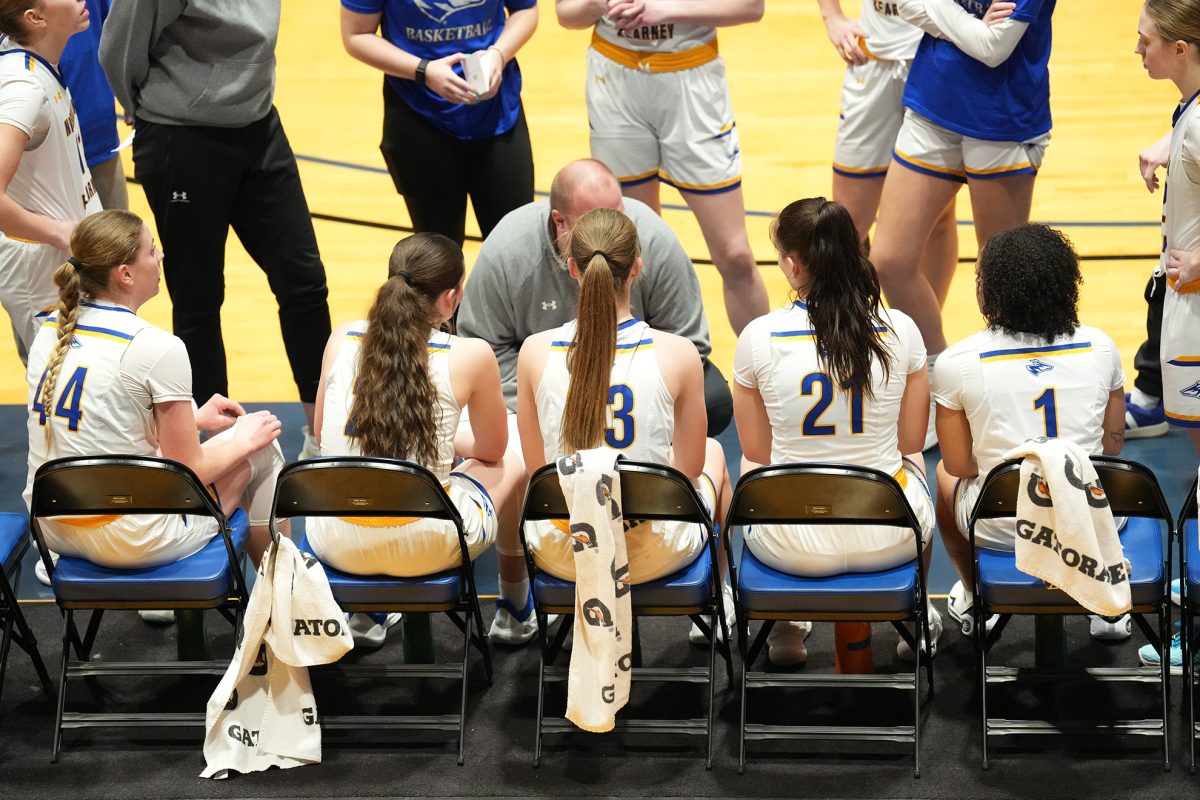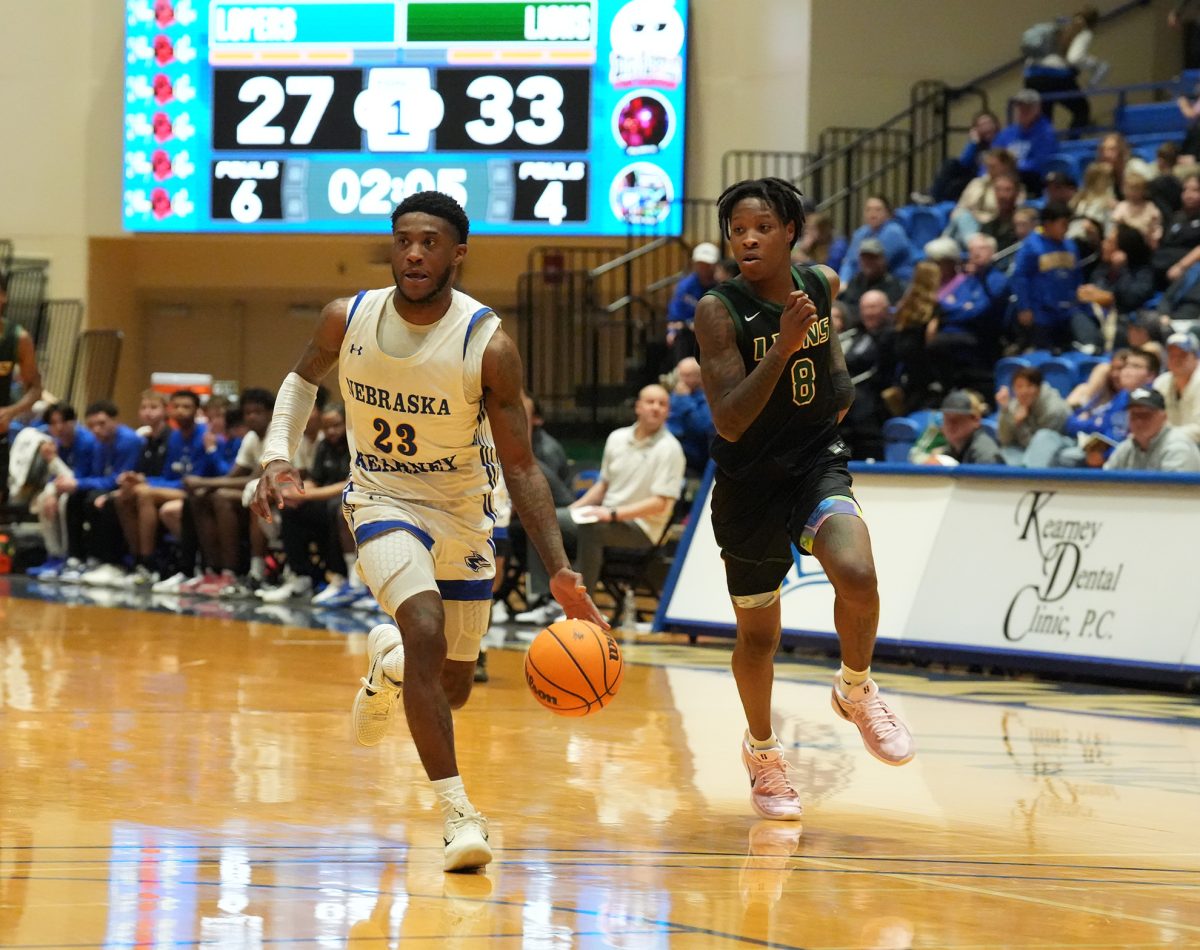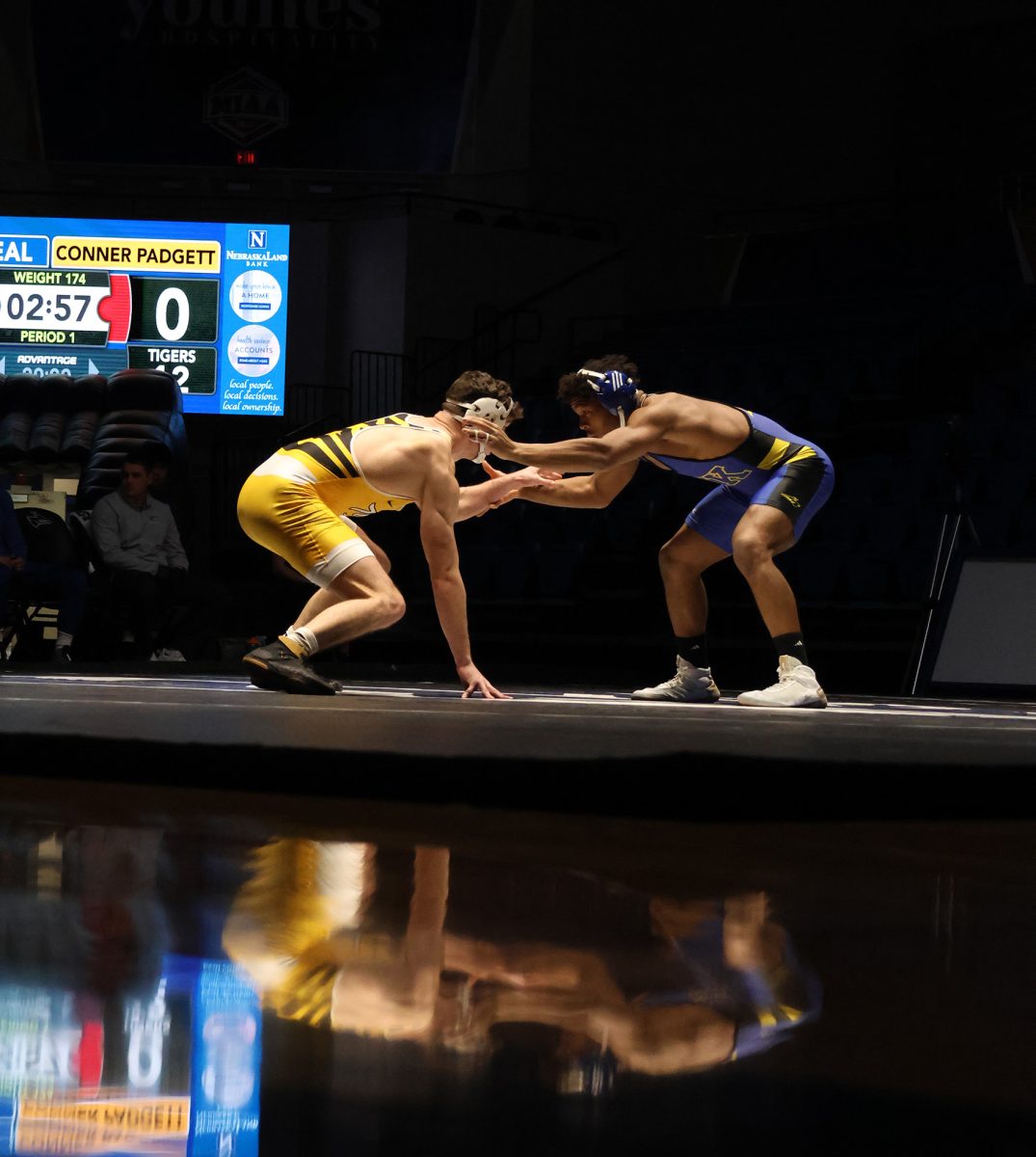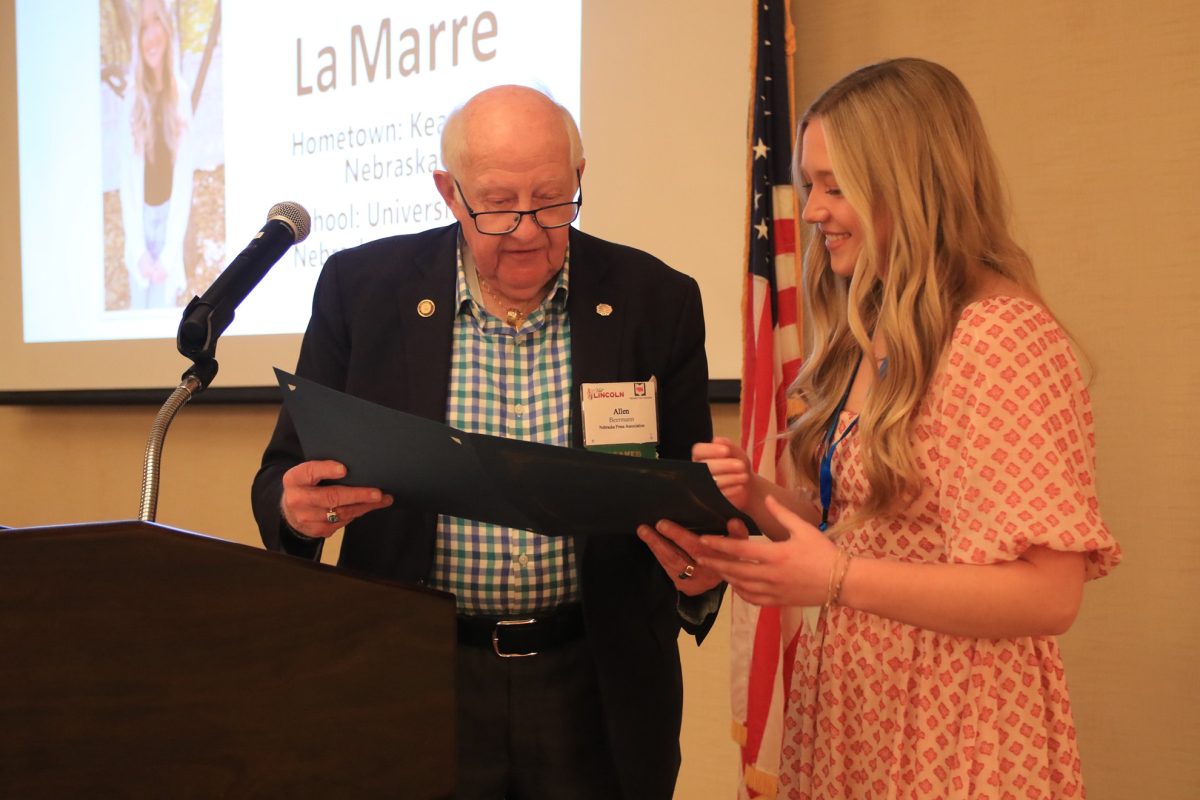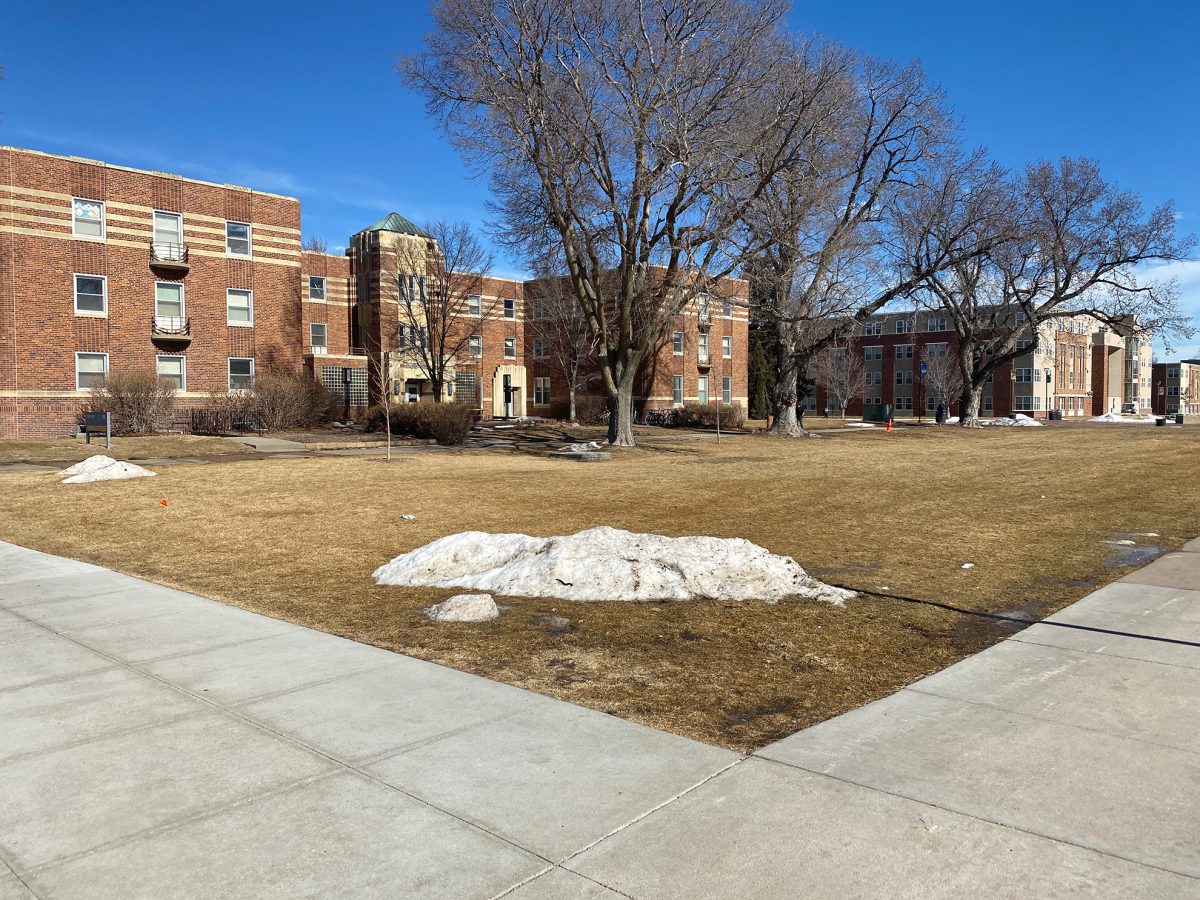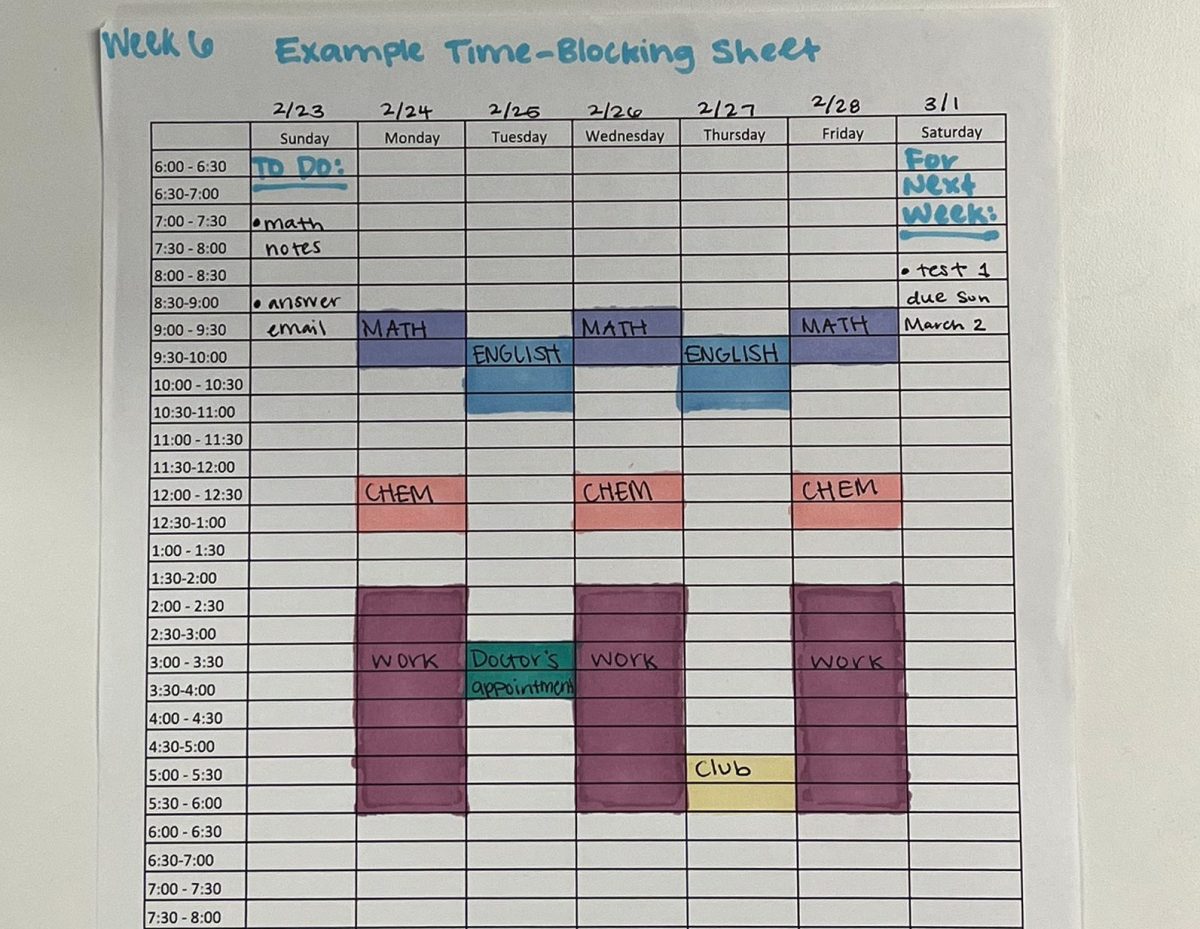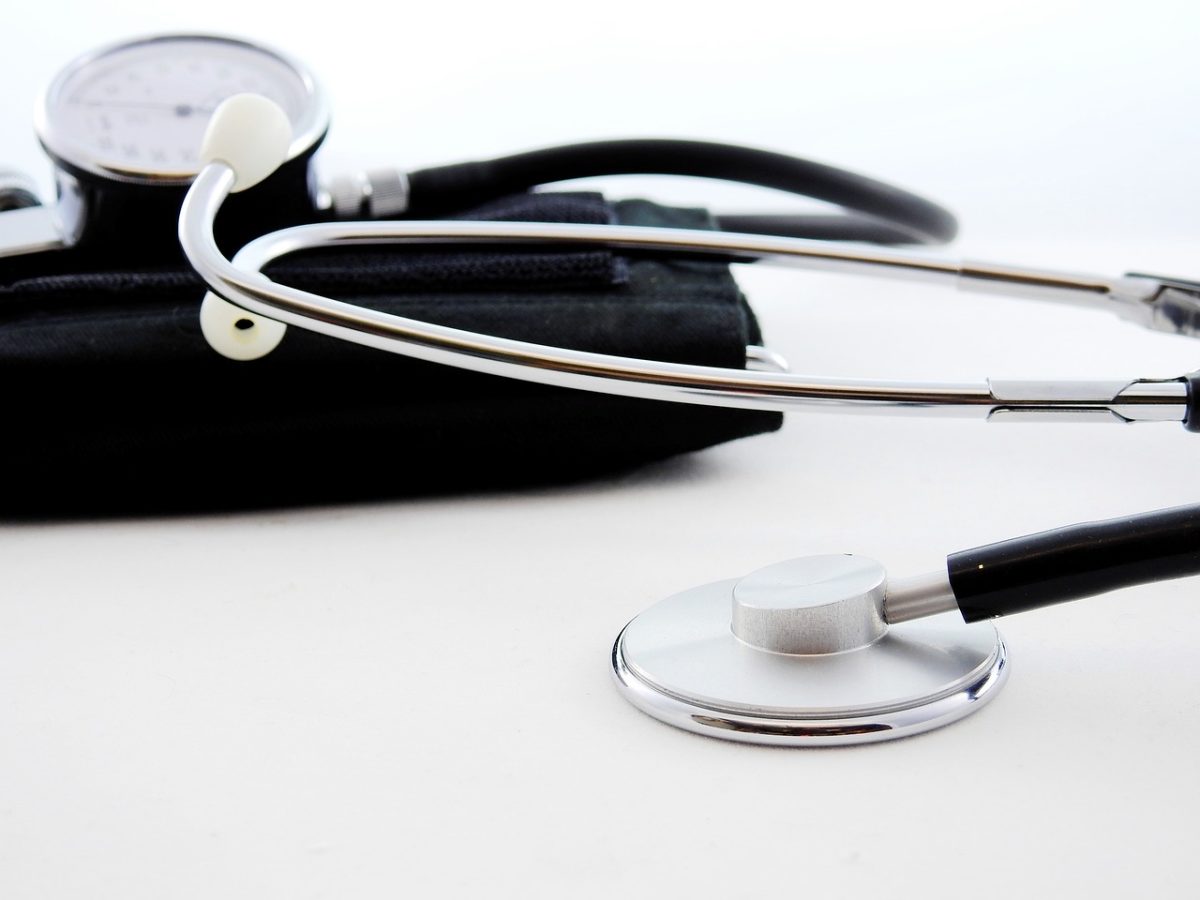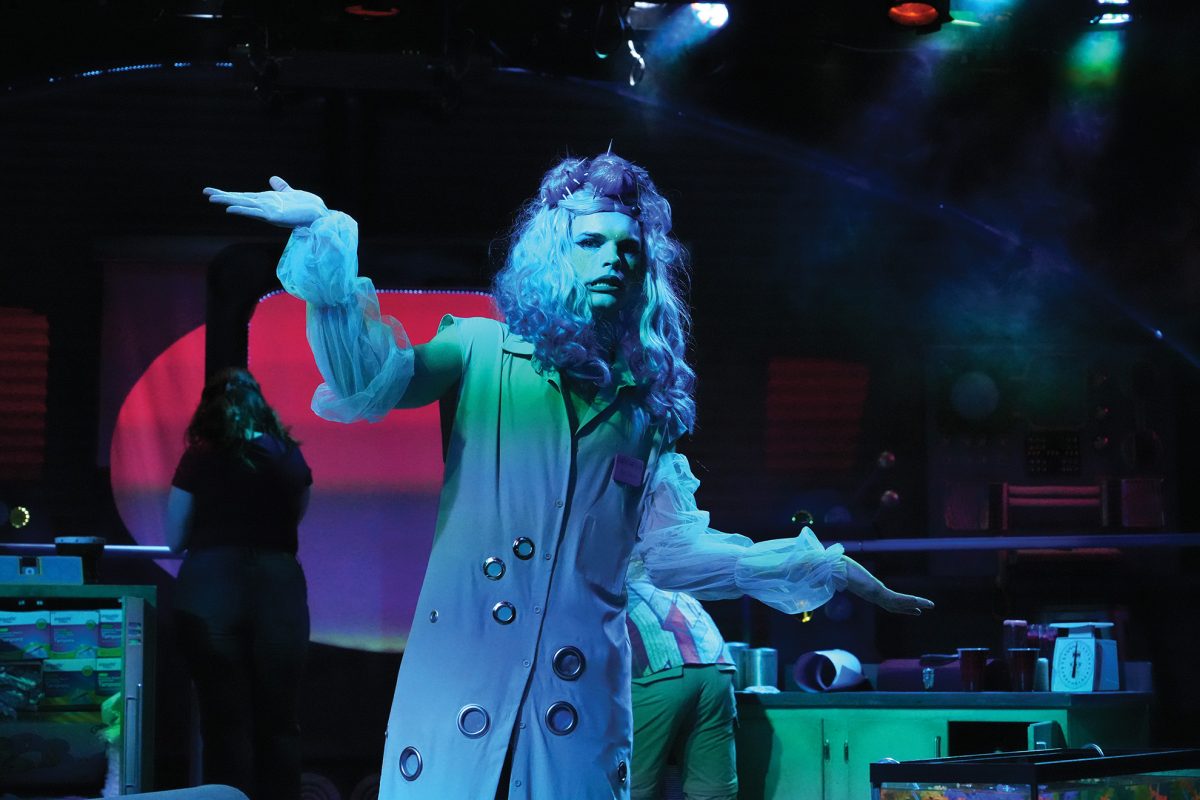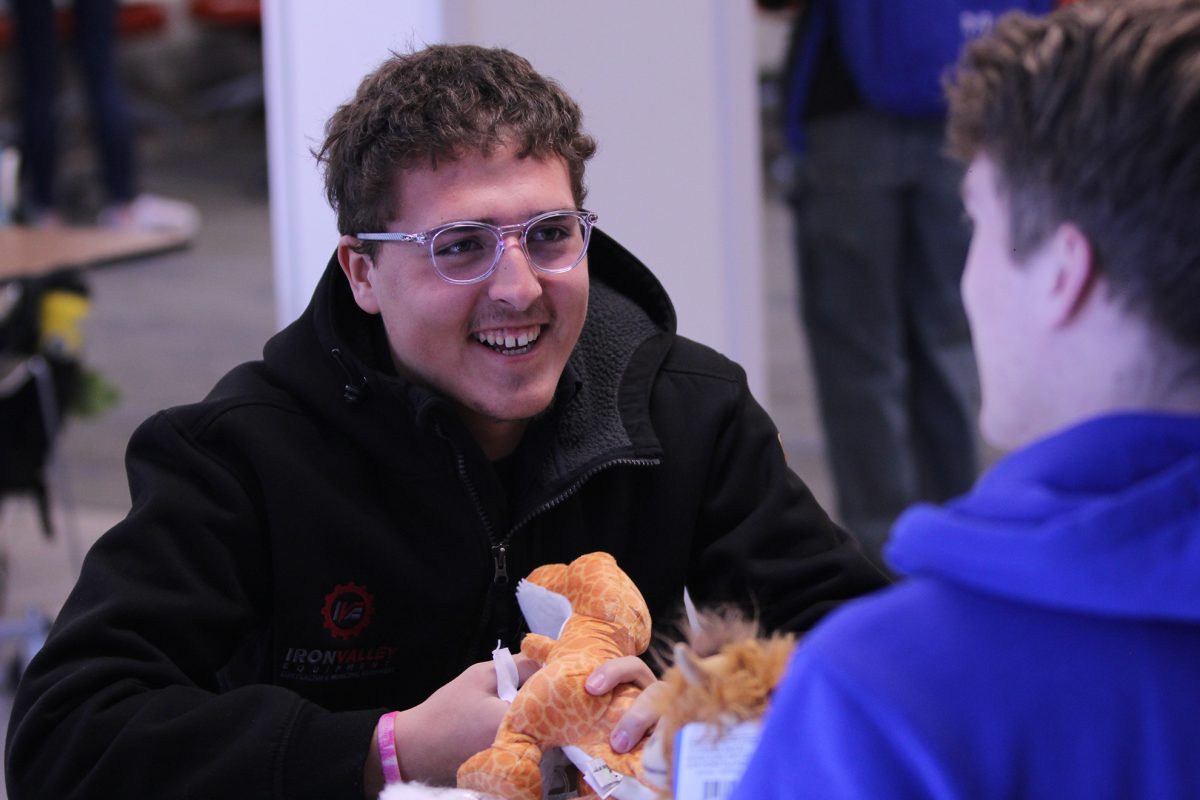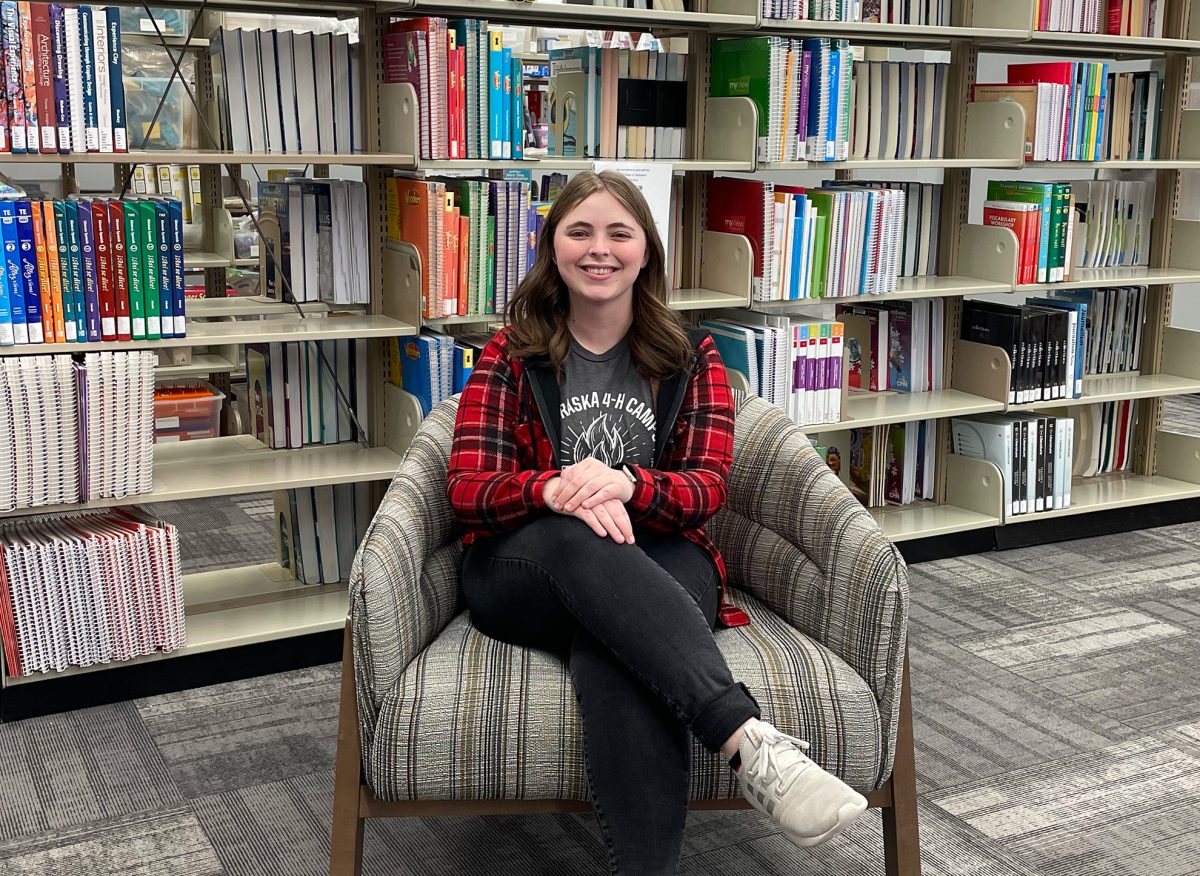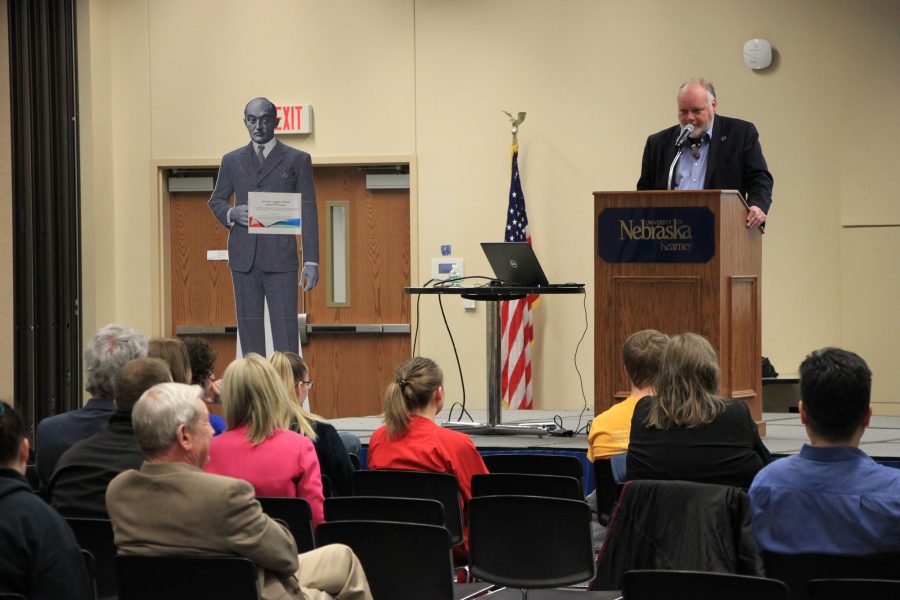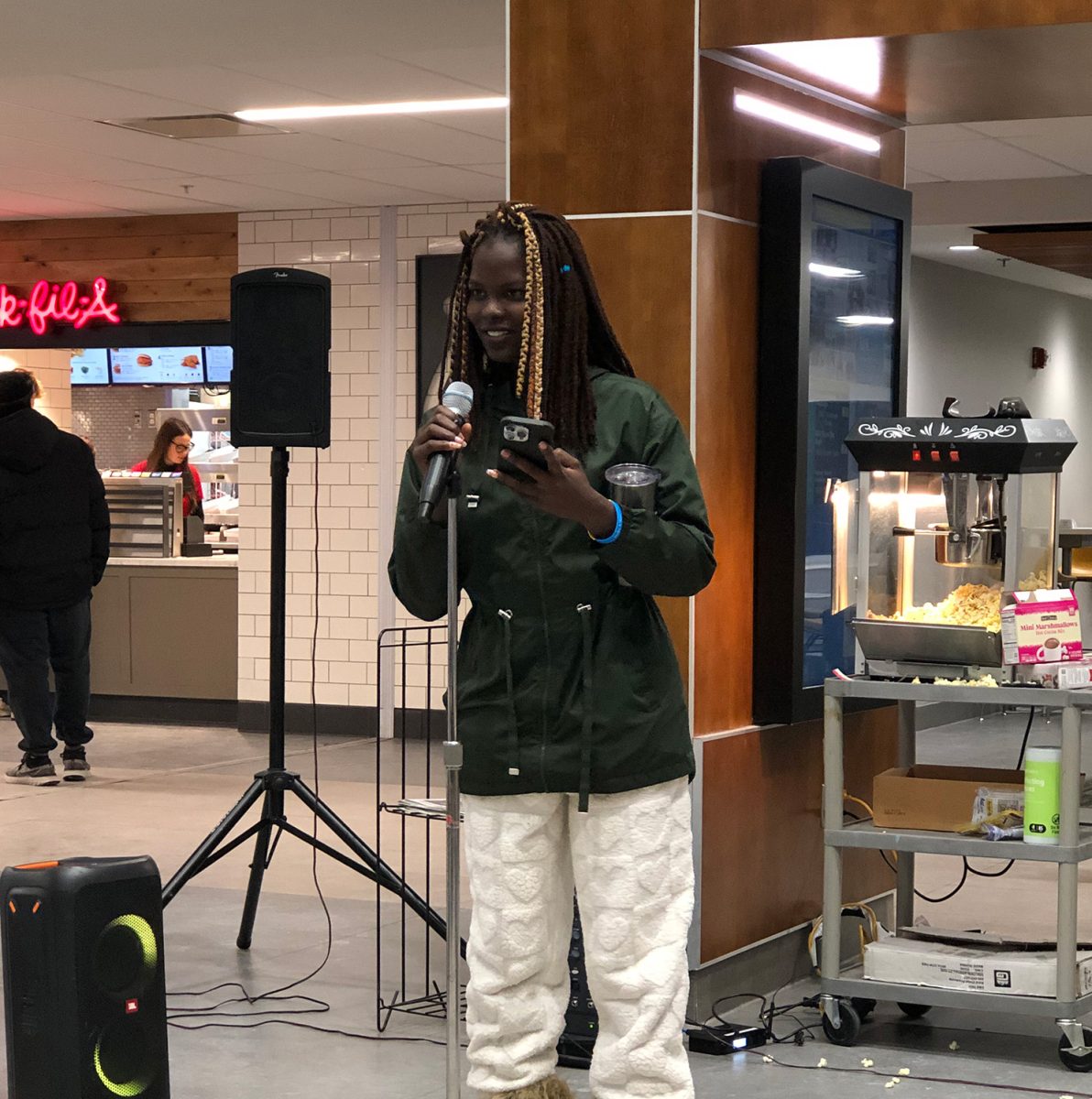GRACE MCDONALD
mcdonaldge@lopers.unk.edu
The annual UNK John C. Marienau Symposium was held last week in the Student Union’s Ponderosa Room. Seventeen local and visiting speakers educated their audiences on the state of rural healthcare in Nebraska.
The crowds consisted of UNK faculty and UNMC students alike.
I found the motivation and the reasoning behind the speakers’ topic choices interesting,” said Preston Hall, a first-year nursing student at UNMC. “The perspectives shared about nursing applies to the areas that I’m interested in. It’s just really inspiring to hear why they are passionate about healthcare.”
Hall was one student among two clinical groups sent from UNMC to attend both days of the event. The remainder of the audience consisted of students majoring in a variety of fields from healthcare and economics to social sciences and communications.
The UNK John C. Marienau Symposium focuses on the Morality of Capitalism and honors the life of its namesake. Marienau was a Kearney State College graduate who eventually became the CEO of Fiber Bond & Tri Lite, Inc.
He worked with CBT administrators and faculty to create an event that would focus on the impact free market capitalism. This was before his untimely death in 2011. His widow, Jane Marienau, has generously donated funds to keep the symposium going for the year of 2020.
Experts spoke about the basics of economics and the blow that healthcare is taking because of assistance from larger organizations being sought out first.
“Some of these economic drivers of stress are something that the local communities have an impact on,” said Dr. Allan Jenkins, a professor of economics at UNK and a member of the program committee. “Many think that bigger is actually better, so they drive past a local hospital for something better. But what they don’t realize is that the care of a local hospital is excellent, namely because they are taking care of their neighbors, friends and family.”
Jenkins explained why local hospitals are suffering financially due to the debt left behind by people who are unable to afford their care.
“They had to agree to share a reasonable amount of charitable care for those in who were unable to pay,” said Jenkins. “They have to stabilize you at an emergency room, and that’s how the providers would behave even without the law. To deal with the effects of capitalism, we need to remember that education is the key, economics is the driver.”
Dr. Karl Borden, a professor of finance at UNK, gave a brief summary prior to Jenkins’s speech about the work of the Austrian political economist, Joseph Schumpeter. He related Schumpeter’s theories to the financial state of our healthcare system and America’s economic standing.
“We used to ask the question, what’s the source of prosperity,” Borden said. “Today we ask the opposite question because we are so wealthy compared to our ancestors.”
The John C. Marienau Symposium was a two-day event that succeeded in promoting rural healthcare systems.



